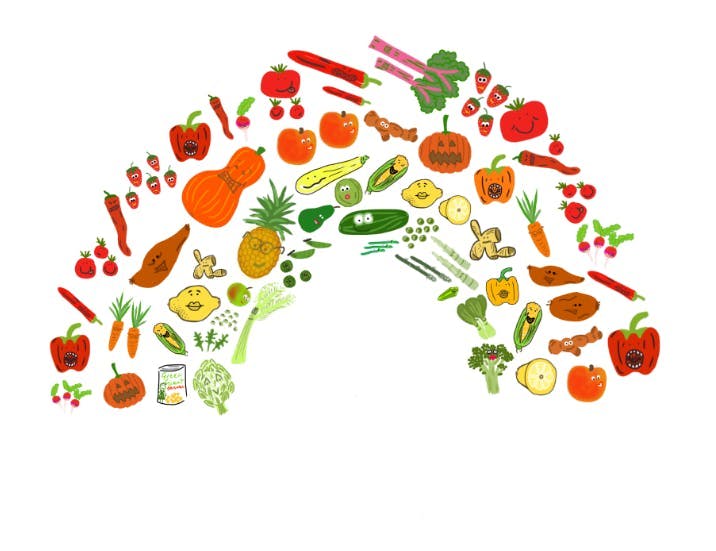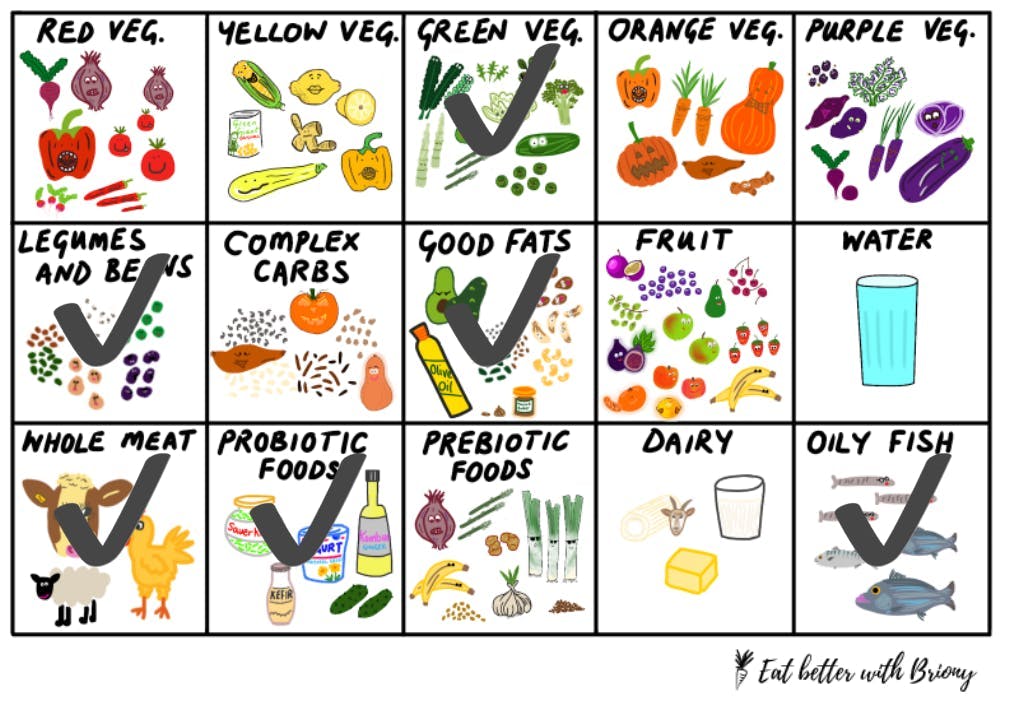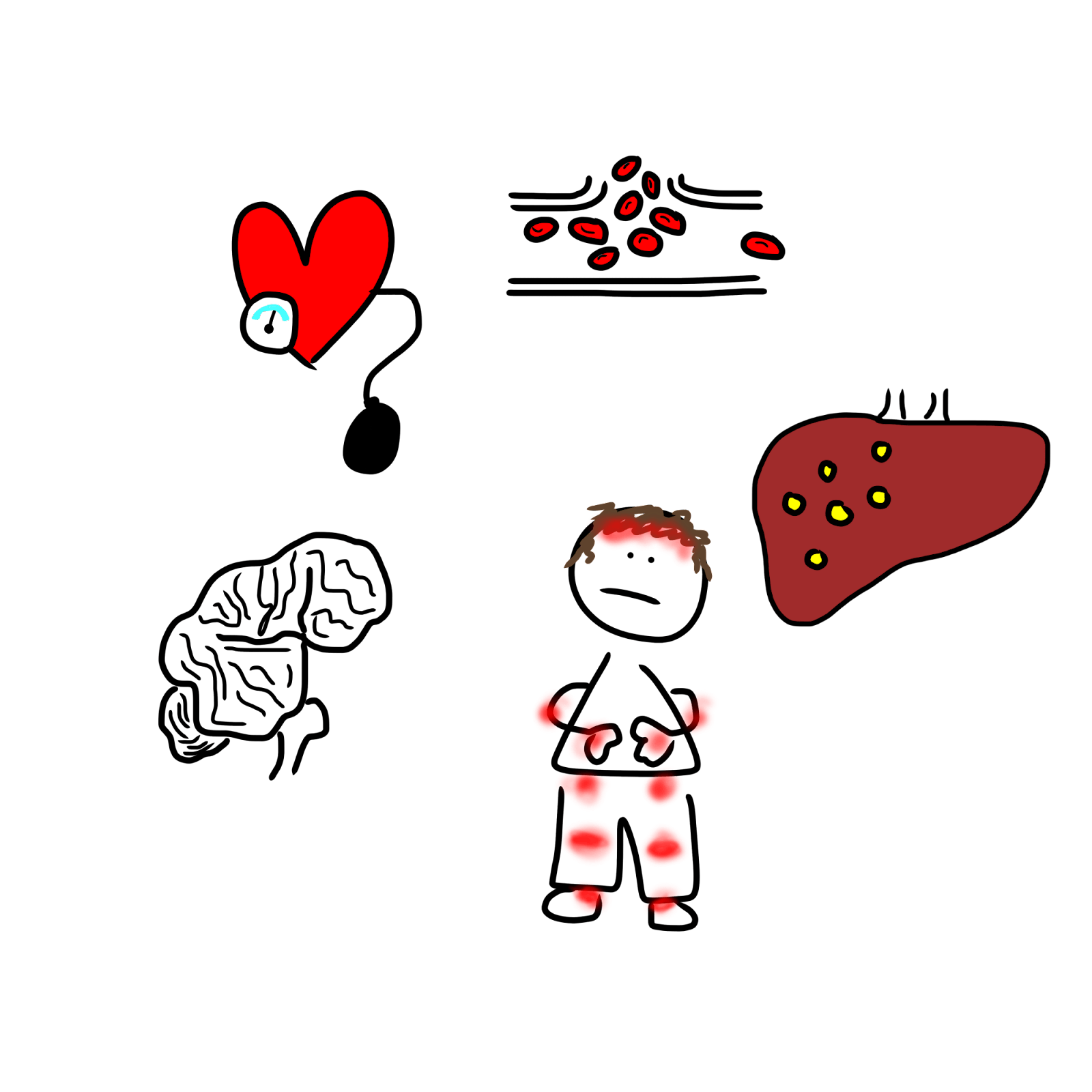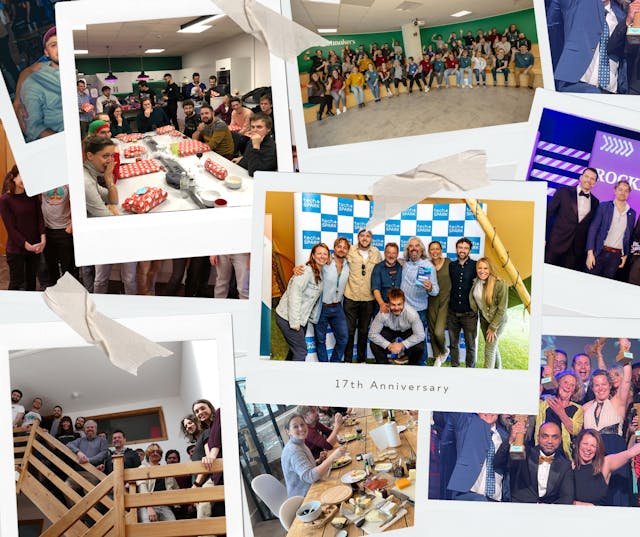How can your food choices and lifestyle help you overcome stress?

When a company more than doubles in size over an 18 month period, you would expect a lot of things to change. At Rocketmakers we’ve seen our soft drinks order grow, our standup sessions get longer and our client list broaden too. One thing that hasn’t changed is our unwavering commitment to our crew members’ wellbeing, whether social, financial, physical or mental.
As we focus on our experience with healthtech projects this month, it felt like a good opportunity to share some handy tips for dealing with workplace stress, a pervasive problem which is hard to solve with tech! We asked our Marketing lead, and part time nutritional therapist, Briony to share some of her favourite simple nutrition and lifestyle hacks to support you in times of stress.
It’s important to remember that stress has a positive place in our lives - to help us operate at an optimum level when you’re under pressure to perform. When stress becomes chronic and interferes with your ability to function normally over an extended period, it can start to have a detrimental effect on our health. In fact, according to one of Briony’s health heros, Dr Chattergee, up to 80% of all GP consultations are thought to be somehow related to stress.
You might experience chest pains, gastrointestinal symptoms, musculoskeletal problems or even issues with your circulation as a result of a disordered stress response. Briony also often sees clients with sleep issues, shortness of breath, a racing heart, brain fog and forgetfulness, and heart palpitations.
So what can you do if stress is taking a toll on you?
1. Deal with the stressor, not the stress
Trying to deal with your stress by dealing with your stressors is like trying to digest your food by doing the dishes. Often people get confused between the source of stress (the stressor) and the symptoms you are experiencing. Rather than trying to focus on the heart palpitations or stomach pains, you need to work out what is driving your stress symptoms - is it the never ending inbox, the difficult conversation you need to have or a combination of factors?
2. Add foods that will support your body to deal with the effects of stress
There are foods that will stress your digestive system out by putting it under strain, and others that will help your cells to deal with stress. After a really stressful day, a wholefood meal is particularly important (even if you don’t feel like cooking).
- Foods high in B vitamins - raw or cultured dairy products, cage-free eggs, grass-fed beef, wild-caught fish, poultry, brewer’s yeast and green leafy vegetables.
- Foods high in calcium and magnesium — natural organic yogurt, wild-caught salmon, beans/legumes, leafy green veggies, cruciferous veggies like broccoli, avocados and nuts.
- High protein foods — eggs, lentils, legumes, nuts, seeds, oats, chicken breast, broccoli…
- Omega-3 fatty acids — SMASH - Salmon, mackerel, anchovies, sardines, herrings.
- Healthy fats - nuts/seeds, avocado, olive oil.

3. Remove foods that increase the stress on your digestive system
Foods that are made from chemicals and are ultra processed, will add more stress to your digestive system and stop you from being able to find a relaxed state. Avoid the following foods if you’re experiencing a stressful time or situation:
- Ultra processed (packaged), foods or those with added sugar
- Too much alcohol or caffeine
- Refined vegetable oils or transfats, fried foods.
4. Complete the stress cycle
When you experience stress, a hormone cycle is triggered - a bunch of hormones are released such as adrenalin and cortisol and these trigger a response in your body. According to evolution, all these reactions happen so that you can run faster from the acute source of stress (think of the tiger on the savannah) - Your heart rate accelerates, your blood pressure increases, your breathing rate increases, your pupils dilate, blood moves away from the surface of your skin so if you get caught, you don't bleed as much. Your immune system slows down, your digestive system slows down, your reproductive system slows down, your attention shrinks down to the here and now, to information relevant only to the immediate circumstances. You are ready to fight or flight.

There are a few things that you can do to complete the stress cycle and switch off the ‘fight or flight’ response when you feel the pressure rising. Each of these will help to move your body and more importantly your hormones into a state of ‘rest and digest’:
- Physical activity - go for a walk or a run, have a quick dance break, and do a little yoga.
- Focus on your breathing - breath in for 5, out for 10 - repeat for 3 minutes. Briony also recommends Breathpod and owaken breath exercises.
- Imagination/visualisation - at Rocketmakers we often use Headspace, this is a great example of a visualisation meditation: https://www.headspace.com/meditation/visualization
- Creative self-expression - do something creative like drawing, sewing, or painting - ideally without a screen involved.
- Have a good cry - sometimes that’s the easiest way to let the stress go.
- Find a superficial social connection - grab a cuppa with a colleague and a chat about something light-hearted or share some pet pictures.
- Make an intimate or spiritual connection - spend some time with a loved one and connect on a deeper level. Get lost in a piece of music.
- Laughter - take some time out to enjoy a little giggle with your favourite comedian or podcast/radio show.
- Mindful self-compassion - spend a few minutes simply writing down how you’re feeling and what has been happening (aka journaling).
- Sleep - focus on your breath, and count your breaths until you drop off to sleep.
According to the Mental Health Foundation, 74 per cent of us have felt so stressed at some point over the past year that we’ve felt overwhelmed and unable to cope. If this is how you are feeling, look for some support, perhaps through your People team at work, via a trained mental health first aider, or through a counselor.



